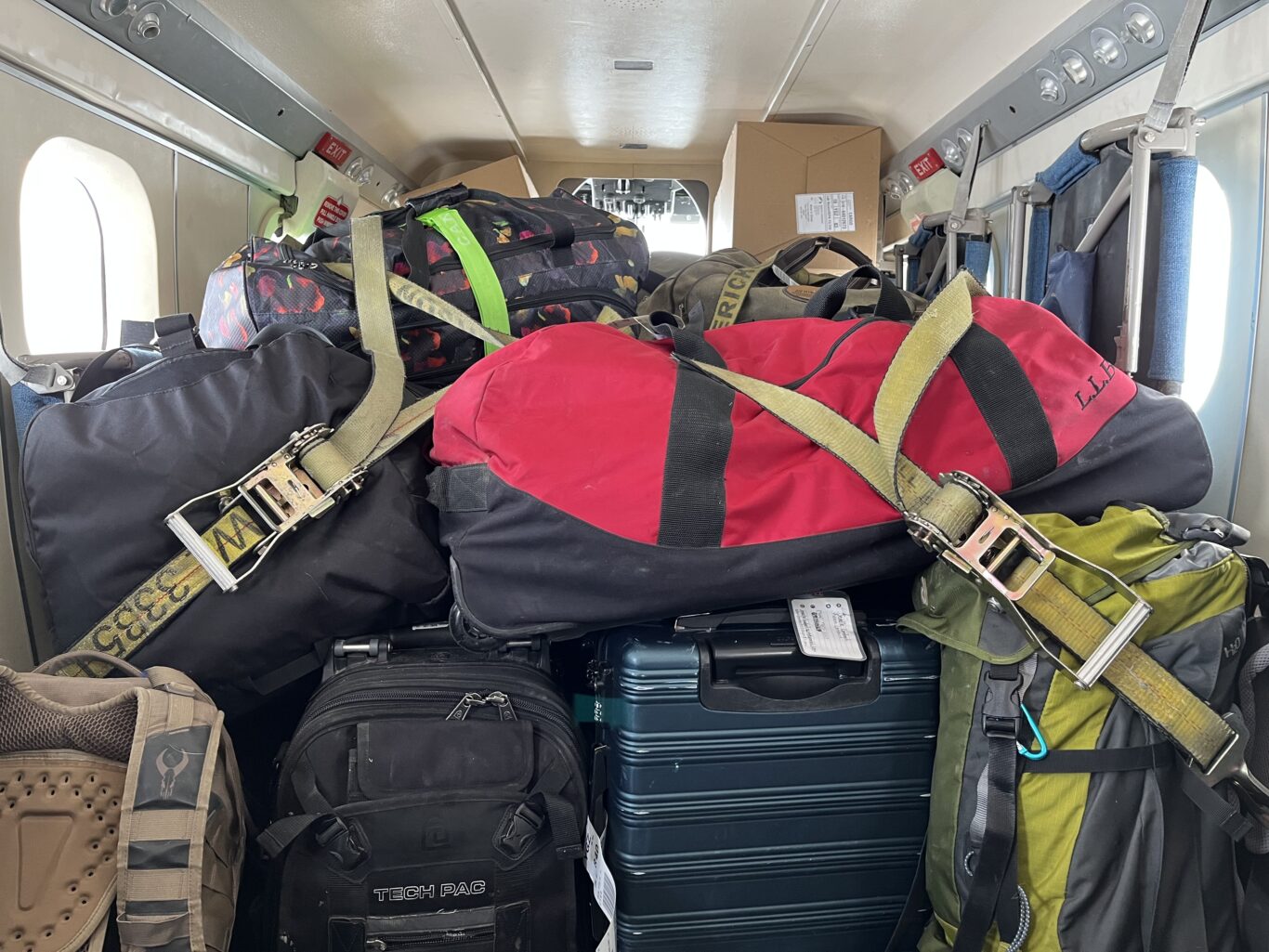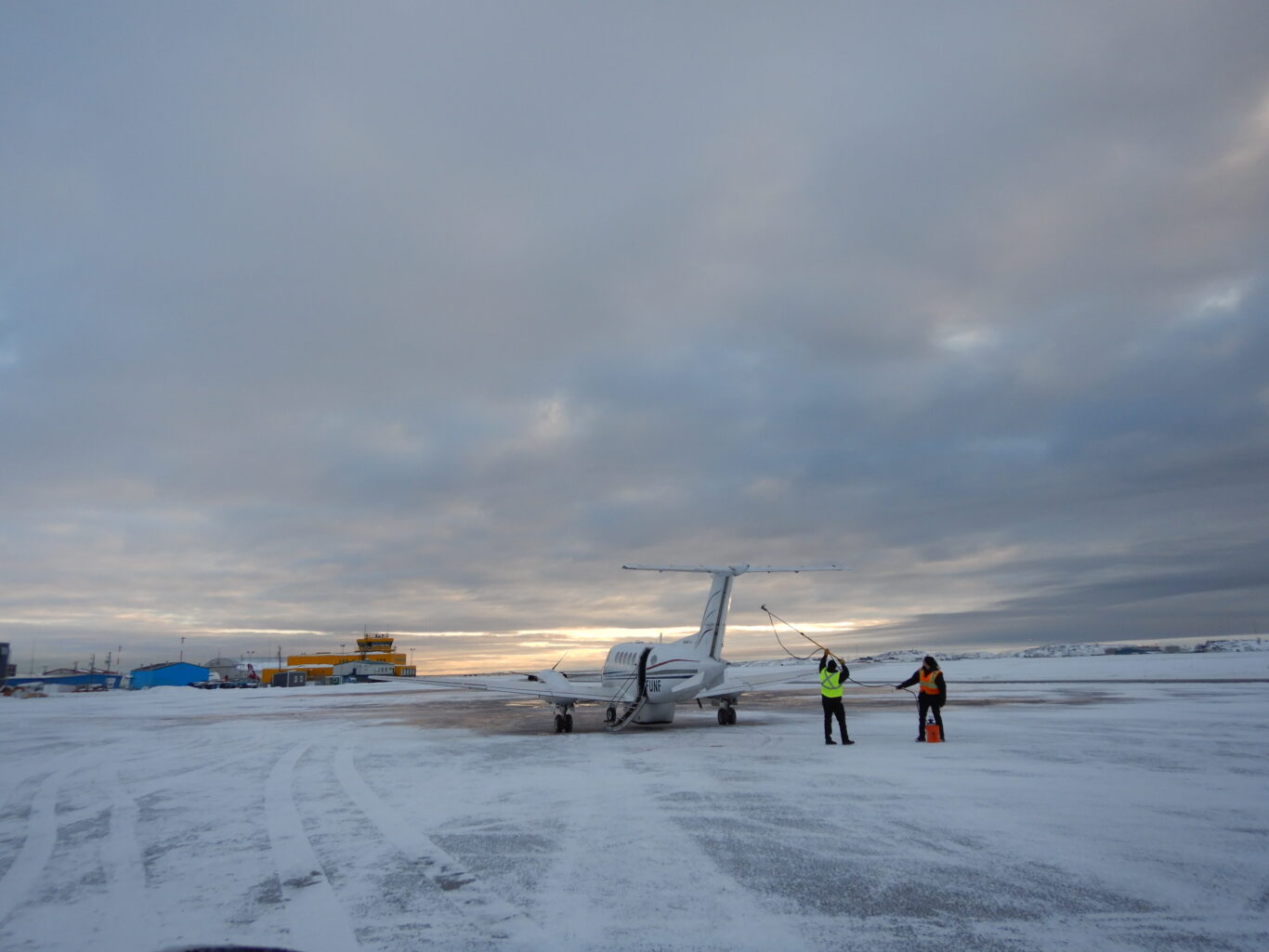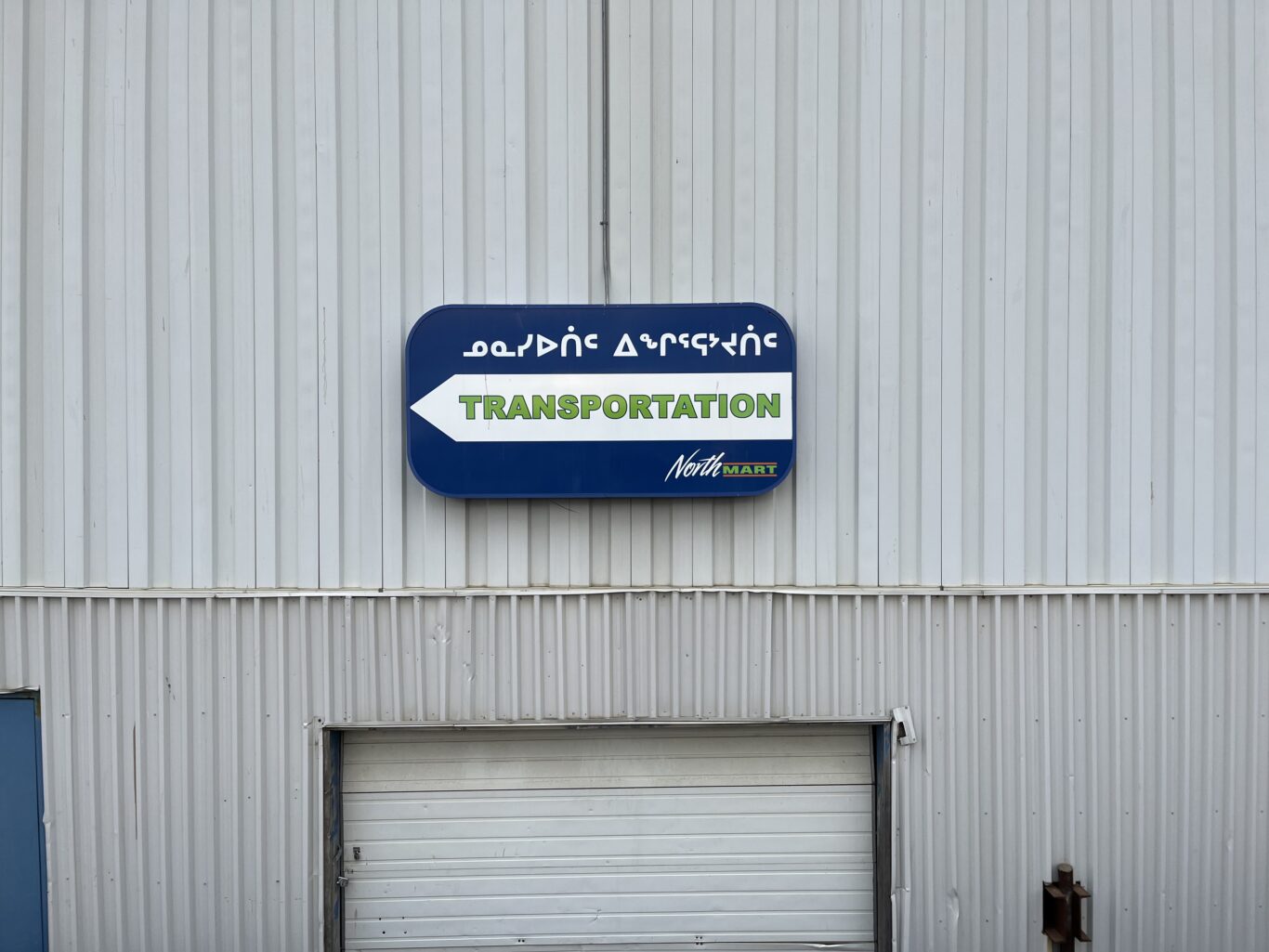Transportation Infrastructure and Its Impact on Food Sovereignty
By Katrin Schmid
Transportation is crucial for both delivering store-bought food and for distributing country food. The long distances, Arctic climate, and limited capacities in communities make providing and maintaining infrastructure a challenge. Each community relies on their own infrastructure to survive, which is both limited and unreliable.
“I mean, you want to support food security in Nunavut? Great. How are you going to get it here? Food and transportation go hand in hand, even country food.” – Resident of Kimmirut, March 2023.
Here are some of the key challenges raised by community members:
– Reliability Issues: Dependence on air transport and sea lift, which are often unreliable due to weather, mechanical failures, and high costs.
“Air transportation is a lifeline but it’s also a headache.” – Government of Nunavut employee, May 2022.
“I’m anxious for the runway to be improved or relocated to a better spot, because we are not getting proper service yet.” – Larry Audlaluk, Grise Fiord, April 2023.
– Runways and Aircraft: The type of runway (gravel vs. paved) greatly impacts the size and type of aircraft that can land, which in turn affects a community’s connectivity, cargo capacity, and overall economic opportunities. Jets with gravel capacity are being phased out, but gravel runways are most suitable for Nunavut’s climate and community sizes. There is one company, Deutsche Aircraft, which is now specializing in gravel aircraft for the Canadian market.
“We’re still running on gravel runways and specialized equipment, even the modern equipment that will fly now, the ATR turboprops that we operate, we have to invest heavily in those aircraft for them to be able to fly into the North because they need special skins on the belly of the aircraft. They have to have special deflection panels around the wheels, and they have to have unique piloting skills and training to land in the North because there’s gravel. And gravel isn’t kind.” – Michael Rodyniuk, former Canadian North CEO, Iqaluit, May 2023.
“It seems like a gravel runway would be difficult to maintain, but they’re actually less challenging to maintain.” (…) “Even more so up here in the Arctic where there’s much more movement in the ground with the thaw. The life cycle of something paved is going to be a lot shorter because of the geological conditions that exist in the permafrost.” “These two runways that we have, that are paved, both have severe challenges.” – John Hawkins, Assistant Deputy Minister of Transportation at Government of Nunavut, and Paul Crenson, Government of Nunavut Manager of Airport Operations, Iqaluit, December 2023.
– Centralization in Iqaluit: Air services are increasingly focused on Iqaluit, making inter-community travel and trade more expensive and logistically challenging. This development does not match Nunavut’s supposed policy of decentralization of services.
“Part of the problem about what you’re saying in the milk run is, yeah, okay, maybe it works, but I don’t know your data on how full your planes are. But for example, now, we have family in Qikiqtarjuaq. They want to go to Pangnirtung. Before, with the milk run, you were there. Now, what you have to do, the flight costs around $4,000 to go to Qik to Pang. You’ve got to go from Qik to here [Iqaluit], overnight here, then to Pang. So that’s not helping the community. To me, I mean, because I live in Pang, that was a great run. And it was full. So now, if you’re going individual, you’re not filling your plane.” – Resident of Iqaluit, Canadian North Open House, May 2023.
– Country Food Shipping Costs and Policies: Canadian North’s country food flat rate ($1.31/kg) is extremely helpful. However, the flat rate benefits individuals but excludes businesses, making it difficult to distribute food commercially, and limiting harvesters’ economic engagement. Canadian North’s monopoly leaves harvesters with no choice when sending country food between communities, but because their planes must deliver cargo to communities as well, country food is not prioritized and often gets lost, or spoils before it arrives.
“Here in Pond Inlet and other places up here, it takes a while to get things here. And planes don’t take everything. They usually try to take the first priority is people’s luggage, mostly, when there’s cargo planes they try to bring everything but when they put it on storage, when they’re trying to send it here, they sometimes get lost and we have to order more.” – Peter Inootik, Pond Inlet, March 2023.
– Lack of Road Infrastructure: While some see potential for roads to connect communities and improve access to resources, others worry about environmental impacts on land and animals.
“It’s nice to think about having a road one day, but then all the things you have to think about that might have an impact on the environment, the people…. It’s kind of hard to say you really want something like that.” – Hunter, Iqaluit, February 2023.
“I think if we had a road to other provinces or even just in the territory, we would probably live here, we would just go out more. We wouldn’t feel trapped. We wouldn’t feel like we’re in a fish bowl. We’d have more options out there, but I think mostly the Elders would stay. Maybe we’d have more tourists.” – Rosie Akavak, Kimmirut, March 2023.
“Pond Inlet should have more roads to camping areas, like Ladies Lake. Very few people can go hunting just outside the town.” – Kenan Issigaitak, Pond Inlet, March 2023.
– Marine Infrastructure Needs and Concerns: More harbors and docks are needed to support fishing, hunting, and economic opportunities. Lack of harbours increases cost of harvesting because boats are more easily damaged. Coastal erosion can be limited with the help of marine infrastructure.
“That’s what infrastructure we need here in order to sustain our harvesting for the ocean, for the land: We don’t have no dock or shelter. There are days that we can’t travel because the waves are huge trying to get out. once you pass the waves you can travel, but you can’t if you can’t get out.” – Resident of Grise Fiord, April 2023.
“[The small craft harbour] was built just last year and it’s definitely been a help to local boaters and hunters. There’s going to be quite a few boats docked there this year. I noticed a few people finally started getting boats. (K: They didn’t have boats before?) No. Either due to shortage of the inventory or not enough money. But some people have been trying to save up and they finally have, so they bought a boat.” – Alooloo Arreak, Pond Inlet, March 2023.
“For fisheries there needs to be a processing and storage building. because if we land the fish there is no storage place or processing, packaging place. And if we want to become a commercial food producer we have to follow the Canadian Food Inspection Agency.” – Resident of Pond Inlet, March 2023.


